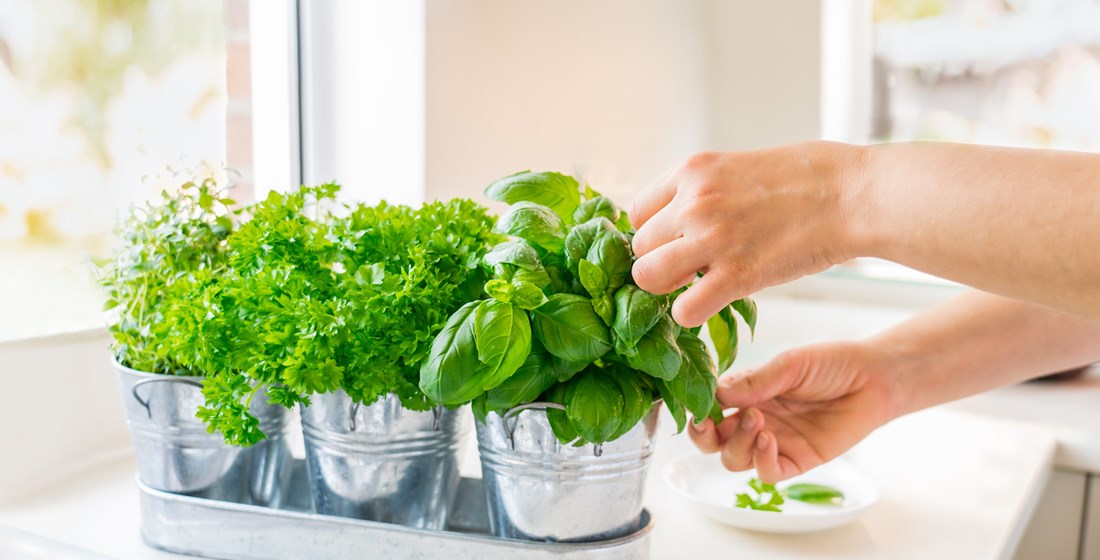How to live sustainably
- Go back
- 31st Mar 21

Embrace sustainable living as a tenant to save you money, reduce your environmental impact and make your home more comfortable.
Consciously designed décor
Contemplate vintage furniture or accessories to create a unique and eco-friendly design. If you don’t have the time to search antique shops or second-hand furniture sites, or if you would just rather buy new, consider ethical and sustainable furniture. Whatever sort of furniture and accessories you choose, think about quality and long-term use.
Be energy efficient
By being more conscious about wasting energy, you can save yourself cash and be kinder to the planet. Taking shorter showers, only washing laundry when you have a full load and keeping the doors closed to trap in the heat are all simple ways to make a big difference over time. With lighting, try and use lamps instead of overhead lights and switch to LEDs. Make the most of the natural light by opening the curtains or blinds and encourage your household to turn off the lights of a room when not in use.
Grow your own food
You don’t need a large outside space, or in fact any sort of garden, to grow your own produce. What you will need are containers and pots. Look for ones that are good-sized and have drainage holes to allow excess water to escape so the roots of plants don’t get root rot. You will also need starting and potting soil mixes and fertilizer. Ask at your local gardening centre if you need advice or look online at any number of gardening websites.
How to grow indoor produce
There’s plenty of fruits and veggies that will thrive indoors. Just make sure that the ones you choose don’t need to grow deep roots. Here are some suggestions for the novice gardener:
- Tomatoes – home-grown tomatoes will burst will flavour. Start by growing your seedlings in a planting tray with starter soil then water until the soil is moist. Leave them in an area that receives lots of sunlight and within five to ten days, the seed will start to germinate. Transfer into a large pot with potting soil, be careful not to damage the roots, replant, water and return to its sunny spot. It will take between sixty to eighty days until the plant produces fruit.
- Salad greens – to help maintain a fresh and healthy diet, add some greens, which are easy to grow. Iceberg, romaine lettuce and spinach are ideal for the novice grower. Use a large planter box with potting soil. Make a few holes and sprinkle a few of the seeds in each hole and then cover with soil. Water regularly and place the planter box in good sunlight. It takes between four to six weeks to start harvesting.
- Carrots – these are one of the easiest vegetables to grow indoors but you will need a 12-inch deep container. Fill the pot with potting soil, stopping about an inch from the top. Make some holes and sprinkle in two to three seeds and then cover with soil. Keep well-watered and leave in a sunny spot. It will take about two weeks for the seeds to germinate and about 70 days for the carrots to fully grow.
- Herbs – grow your own little herb garden to add flavour to your cooking. Oregano, thyme, rosemary, chives, parsley and basil will be happy growing inside. The basic instructions will roughly be the same although the exact care may vary. Fill a pot with fast-draining potting soil and sprinkle in the herb seeds and then cover with soil. Water regularly to keep topsoil moist and use a liquid fertilizer a few times a month. Take the leaves to use but leave the plant to keep producing.
Get recycling
Whether you live alone or with others, create a recycling system that is easy to follow and everyone can get on board with. Separate bins clearly labelled for different materials is a fail-safe option. However, there are a few do’s and don’ts when it comes to recycling.
- Food waste – needs to be put in the waste bin or it could contaminate the entire recycling load.
- Check plastic rules – you need to remove the lids of some plastic drink bottles and most soft plastics can’t be recycled.
- Bathroom items – rinse out shampoo and conditioner bottles and aerosol cans such as deodorant and hairspray can all be recycled. Just remember to bring them down to the recycling bins.
- Paper – paper envelopes with the clear plastic window can be recycled. However, baking parchment, paper ice cream containers and tissues can not be recycled.
- Glass – rinse and dry glass bottles and jars for recycling. Broken glass, reading glasses and light bulbs can’t be recycled.
- Aluminium foil – lots of foil can be recycled including foil from yoghurts lids and trays used in the oven.
- Take-out containers – give them a wash and most of them can be recycled.
- Batteries – together with mobile phones, ink cartridges and gas bottles can’t be recycled at home but can be recycled at specific collection points.
Switch providers
To make easy eco-friendly changes, switch to a green energy provider. This is when providers pay to offset carbon emissions or green energy is generated from renewable sources such as wind or solar. Green energy relates to the tariff more than the supplier and your actual energy will still be a mix of ‘clean’ and ‘dirty’ energy. Many of the cheapest deals offer renewable energy so going greener will also put extra pounds in your pocket.
